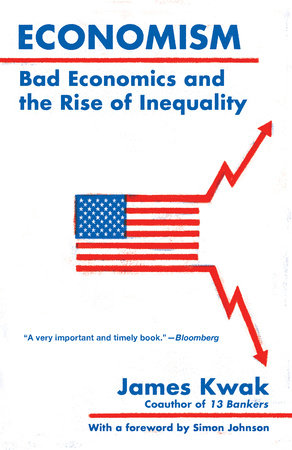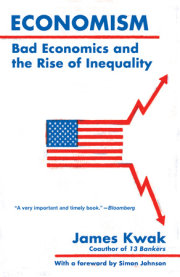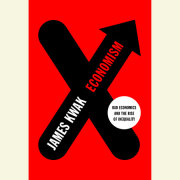1 The Best of All Possible Worlds
Gottfried Wilhelm Leibniz was one of the most brilliant people of any age—an inventor of calculus, an expert in virtually all of the natural sciences, and a pioneer of modern philosophy. One of his central preoccupations, however, was a fundamentally religious question: If God is both benevolent and all-powerful, why do evil and suffering exist? In his 1710
Theodicy, Leibniz answered, “There is an infinitude of possible worlds among which God must needs have chosen the best, since he does nothing without acting in accordance with supreme reason.” If a better world were possible, God would have created that one instead; therefore, we live in the best of all possible worlds.
Unfortunately for Leibniz, his philosophy is best known as the subject of Voltaire’s satirical novel
Candide, a manifesto of the French Enlightenment. In Voltaire’s story, Pangloss proves to his student Candide that we live in the “best of all possible worlds,” and Candide cheerfully repeats the mantra “all is for the best” as he suffers an increasingly fantastic succession of misfortunes.
Voltaire was mocking not just Leibniz but also the use of religion to justify the social order of the time. Early modern Europe was a world of widespread material hardship in which a privileged few lived in relative comfort while the masses struggled to make ends meet—an archaic order that was upended by the French Revolution of 1789. If you were a landowning aristocrat in prerevolutionary Europe—when the “1 percent” owned something like 60 percent of everything there was to own—how would you have explained the vast gulf in living standards between you and the common people? You might not have been a strict Leibnizian Optimist, but most likely you would have taken refuge in a religious understanding of the social order. Depending on your denomination, you might have believed that the socioeconomic hierarchy was dictated by God or that the virtuous poor would earn their just deserts in a kingdom to come. According to the sociologist Max Weber, we owe the rise of capitalism to Calvinist Protestants who saw their material success as proof of their personal salvation. One way or another, religion provided a ready justification for a vastly unequal society.
Fast-forward to the late nineteenth century. The Western world has been utterly transformed by industrialization and the growth of the urban working class. But society once again appears dominated by a small number of extraordinarily wealthy families with names like Rockefeller, Carnegie, Mellon, and Morgan. On the eve of World War I, the 1 percent own more than 40 percent of total wealth in the United States. If you are a rich industrialist living in a Hudson Valley mansion, how do you rationalize an economic system that allows you and your peers to live like French monarchs while books like
How the Other Half Lives are exposing the squalor of urban slums?
In a post-Enlightenment world, traditional religion is unlikely to do the trick. Instead, you can appeal to modern science in the form of Darwinian evolution, metaphorically applied to human society. Herbert Spencer, who was enormously influential in the United States after the Civil War, claimed that societal evolution required the “survival of the fittest”: “the poverty of the incapable, the distresses that come upon the imprudent, the starvation of the idle, and those shoulderings aside of the weak by the strong” all ultimately serve the long-term progress of humanity. William Graham Sumner translated this doctrine into a celebration of the wealthy: “[The millionaires] may fairly be regarded as the naturally selected agents of society for certain work. They get high wages and live in luxury, but the bargain is a good one for society.” Any attempt to tinker with this natural order of things would be doomed to failure. For the businessmen who emerged victorious from the “evolutionary” struggle, this worldview provided a convenient justification for their riches and social standing. In the words of the historian Richard Hofstadter, Social Darwinism “was seized upon as a welcome addition, perhaps the most powerful of all, to the store of ideas to which solid and conservative men appealed when they wished to reconcile their fellows to some of the hardships of life.”
Now fast-forward to today. Across the developed world, vast fortunes are again ascendant. In the United States, the top 1 percent take home a larger share of total income than at any time except the late 1920s. The total wealth of the world’s billionaires has quadrupled in the past two decades (even when the definition of “billionaire” is adjusted for inflation). The signs of excess are visible everywhere, from Stephen Schwarzman’s $3 million birthday party to Bill Ackman’s $90 million New York apartment that he doesn’t plan to live in. In the meantime, ordinary people are struggling. In the United States, the average family makes only 8 percent more money (after adjusting for inflation) than it did in the early 1970s, and even that meager increase is due to the fact that more people work today, whether by choice or by necessity; median income for men has actually fallen. In the 1950s, a typical CEO of a large company took home as much money as twenty average employees; today he makes as much as two hundred workers. The percentage of families in poverty has remained essentially unchanged for the past half century. A rising tide no longer lifts all boats.
If you are a Wall Street master of the universe or a billionaire hedge fund manager, you face the same challenge as the aristocrats and industrialists of centuries past: How do you justify the vast economic chasm that separates you from the people you pass on the street every day? Appeals to Christian theology or evolutionary necessity are unlikely to be convincing today. Instead, you can turn to another source of absolute truth: Economics 101. According to an introductory economics class, each person’s income is equal to her marginal product: you are necessarily paid the value of your work. Inequality simply reflects the fact that some people are smarter, more skilled, or more hardworking than others. Tinkering with the natural distribution of income—say, through taxes—would reduce the incentive to work, making everyone worse off. The law of supply and demand ensures that all resources are put to their optimal use, maximizing social welfare. Attempts to interfere with these fundamental principles—regulations, for example—only create “deadweight losses” that reduce the total output of the economy. We live in the best of all possible worlds (or we would, if only we could get rid of those taxes and regulations), not because God would otherwise have made a different one, but because any other world would make everyone worse off.
Copyright © 2017 by James Kwak. All rights reserved. No part of this excerpt may be reproduced or reprinted without permission in writing from the publisher.










